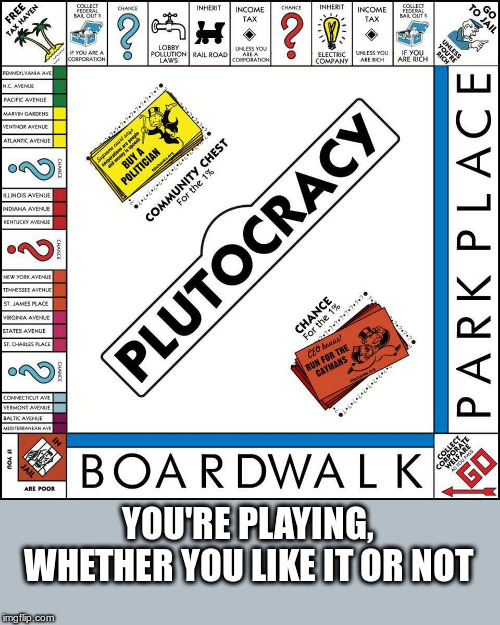

California, already strapped from the bursting dot.com bubble, lost $356 million in estate tax revenues last year as the phaseout began. Thanks to the arcana of this new tax law, state treasuries will feel the brunt of the disappearing estate tax first. Either way, this is a serious loss when we know the first wave of aging baby boomers will begin to draw on Social Security and Medicare. Gates and Collins point out - as we see soaring budget deficits in the years ahead - that permanently eliminating the estate tax as the Republicans hope to do will cost the federal government either $154 billion (the conservative estimate) or $752 billion (the liberal estimate) each year. Today, the ratio exceeds five hundred to one." In 1980 the disparity between the highest-paid workers in America's 365 largest companies and their employees was forty-two to one. At the bottom end of the pay scale, the number of people working for poverty wages is troubling. The richest fifth of Americans earn 11 times more than the bottom fifth. finds itself and where it is going, noting that we are "now the most unequal society in the industrialized world. These two are clearly appalled at where the U.S. (Bill's father and a wealthy attorney in his own right) and Chuck Collins lay out the group's case in Wealth and Our Commonwealth (Beacon, 192 pages, $25). Their group, Responsible Wealth, aims to shame the Congress into fiscal and social responsibility. Talk about gall.īush's crusade to permanently repeal the estate tax has galvanized a growing movement of rich and prominent people to actively oppose him.

No, he yearns only to funnel more money to the already ultra-rich. And yet it is not these average struggling Americans that concern our compassionate president. In these same decades, the bottom 60 percent of Americans saw little meaningful change in their (often meager) pay checks. By 2001 you needed $725 million to make the list, and the average net worth was $2.4 billion. To truly appreciate the recent vast roll-ups in wealth for those in the topmost economic sliver, consider that in 1982, when Forbes Magazine first began listing the four hundred richest Americans, the entry threshold was $91 million and average net worth was $400 million. Now, after two decades of an economic boom coupled with Republican policies and tax cuts, the top 1 percent of Americans have once again almost doubled their share of national wealth, to 38 percent. government in the decades after World War II was actively committed to greater economic equality. In 1976 the top 1 percent of Americans owned less than 20 percent of the nation's wealth, compared with 56 percent in Teddy Roosevelt's era. Bush's bizarre and cruel crusade to make the super-rich still richer (even as 40 million Americans have no health insurance), it helps to know the following. First he wants to eliminate forever the very estate tax Teddy Roosevelt felt was so important, and now Bush the Second has proposed various fiscally reckless tax cuts that he asserts (in that sincere and winning way he has) will benefit all, a claim the Financial Times immediately analyzed and dismissed as "obviously bogus." Bush, who strives with messianic zeal to make the richest Americans even richer. Back then, Republican President Teddy Roosevelt denounced the "malefactors of great wealth" and championed numerous measures to rein them in, including an estate tax on "fortunes swollen beyond all healthy limits." Roosevelt, himself very much of the privileged classes, believed that the "man of great wealth owes a particular obligation to the State because he derives special advantages from the mere existence of government." Kathleen Dalton's Theodore Roosevelt: A Strenuous Life (Knopf, 736 pages, $35) reacquaints us with a rich Republican politician who was a real compassionate conservative, a man who fought hard so all Americans could share in the nation's astonishing wealth.Ĭontrast Teddy Roosevelt's old-fashioned belief in noblesse oblige and equality with our current Republican President George W. Much seems the same, but, ah! the differences.


 0 kommentar(er)
0 kommentar(er)
